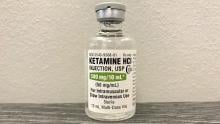
Member Prices
There is mounting interest in the use of ketamine and other novel drugs that may produce a rapid onset of antidepressant effects in mood and other neuropsychiatric disorders. This presentation will highlight the rationale for this approach, critically review the emerging data from several clinical trials, and discus the limitations of the studies completed to date. In specific we will review the available data on the efficacy and safety of ketamine and other putative rapidly acting antidepressants in the context of mechanism of action, practical clinical usefulness, and its ability to inform future drug development and patient care.
At the end of this session, participants will be able to:
- Describe the current unmet needs for novel antidepressant treatment approaches
- Critically evaluate current data from clinical trials on rapidly acting antidepressant mediations and discuss putative mechanisms of action related to rapid onset antidepressant drugs
- Summarize the issues associated with the rapidly rising use of ketamine in clinical settings
Presentation level: Introductory
*Please note that this webinar is not eligible for continuing education credit.












